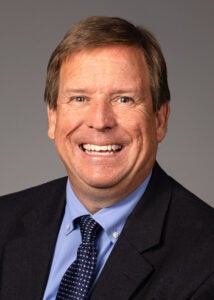Professor Hugh Lee

Office: Brewster A-135 and Brody Health Sciences 2S-17.1
Office Phone: (252) 328-0161 and (252) 744-2179
Fax: (252) 328-4134
Email Address: leehu14@ecu.edu
Teaching Areas: Bioethics, Health Care Policy, Ethics and Jurisprudence, Constitutional Law, Judiciary, Administrative Law, Aging Policy, Civil Rights and Civil Liberties
Research Interests: Health Care Policy, Surrogate Decision-Making, Intersection of Law and Ethics, Election Law, Regulation and Limitation of Civil Rights, and Legal Issues Affecting the Elderly
Professor Hugh M. Lee currently serves as Teaching Professor of Bioethics and Interdisciplinary Studies at the Brody School of Medicine, East Carolina University. He also teaches in the Department of Political Science every semester. Professor Lee serves as the primary instructor for the Department’s prelaw concentration, teaching Constitutional Powers, Civil Liberties, American Judiciary, and Legal Reasoning and Negotiation. Prior to accepting his current position, Prof. Lee taught at the University of Alabama School of Law from 1996 to 2015, during which he directed the Elder Law Clinic, and founded and directed both the Civil Clinic and the Foreclosure Relief Clinic programs.
He is the author, with Jennifer N. Marshall and Gaines Brake, of Alabama Elder Law, a 1500-page treatise from Thomson Reuters (formerly West Publishing). He has published extensively on legal issues, such as election law, HUD housing programs, Medicare, Social Security, Medicaid, Guardianship, and health policy, and has presented both regionally and nationally on these issues. Professor Lee’s primary appointment is in the Brody School of Medicine, where he serves as the course director for the first-year bioethics course. In his current role, his research focuses on health policy and the ethics of substituted decision-making in the medical context. Mr. Lee holds a B.A. from Davidson College and a J.D. from the Florida State University College of Law. He is a member of the Alabama State Bar, the North Carolina Bar Association, the American Society of Law, Medicine and Ethics, and the National Academy of Elder Law Attorneys.